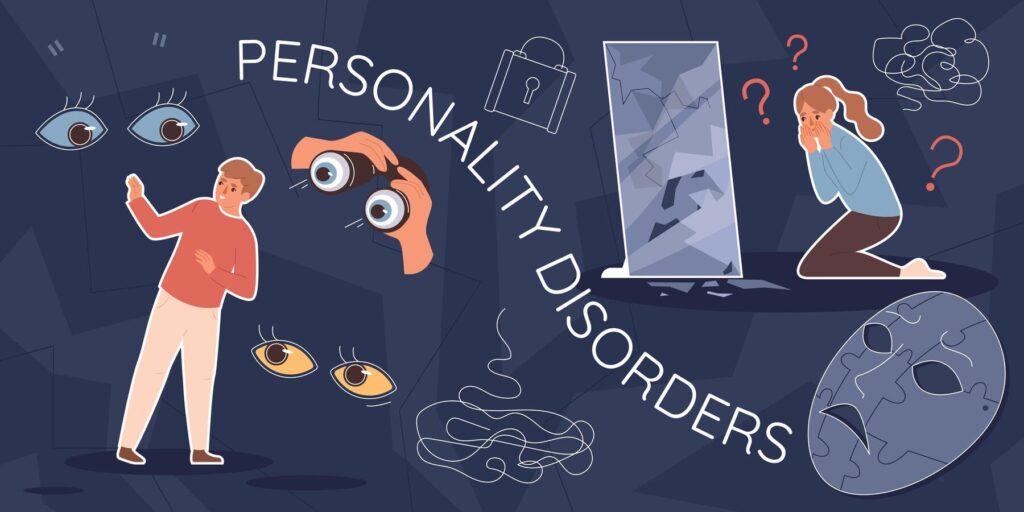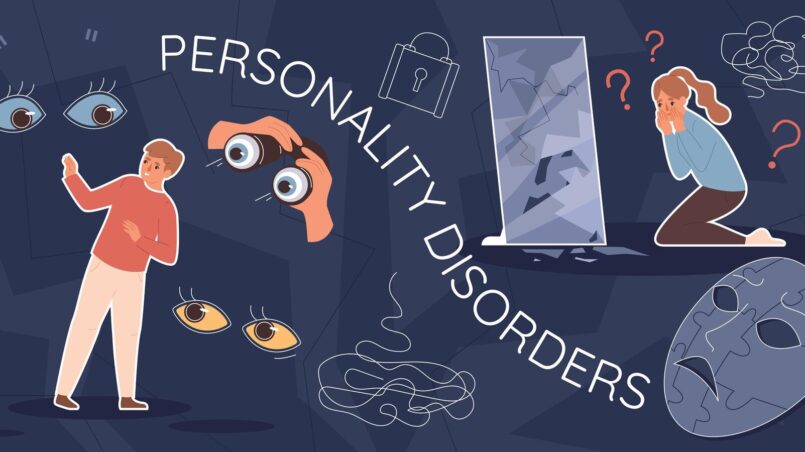
Introduction: Unveiling the Types of Personality Disorders
Personality disorders encompass a wide array of mental health conditions characterized by unhealthy patterns of thinking, feeling, and behaving. Understanding these disorders is crucial for effective diagnosis and treatment. Let’s delve into the intricacies of various types of personality disorders.
Types of Personality Disorders
1. Narcissistic Personality Disorder (NPD)
Narcissistic Personality Disorder manifests as a pervasive pattern of grandiosity, a constant need for admiration, and a lack of empathy towards others. Individuals with NPD often exhibit an exaggerated sense of self-importance, a preoccupation with fantasies of success, power, or beauty, and a tendency to exploit others for personal gain.
2. Borderline Personality Disorder (BPD)
Borderline Personality Disorder is characterized by unstable relationships, self-image, and emotions. People with BPD may experience intense episodes of anger, depression, or anxiety, often leading to impulsive behaviors such as self-harm or substance abuse. Interpersonal conflicts and fear of abandonment are common features of this disorder.
3. Antisocial Personality Disorder (ASPD)
Antisocial Personality Disorder entails a disregard for social norms and the rights of others. Individuals with ASPD may exhibit deceitfulness, impulsivity, and a lack of remorse for their actions. They often engage in irresponsible and risky behaviors without considering the consequences, leading to legal troubles and interpersonal difficulties.
4. Obsessive-Compulsive Personality Disorder (OCPD)
Obsessive-Compulsive Personality Disorder is characterized by a preoccupation with orderliness, perfectionism, and control. Unlike Obsessive-Compulsive Disorder (OCD), which involves specific obsessions and compulsions, OCPD revolves around a rigid adherence to rules and routines, often at the expense of flexibility and spontaneity in interpersonal relationships.
5. Avoidant Personality Disorder (AvPD)
Avoidant Personality Disorder is typified by feelings of inadequacy, hypersensitivity to criticism, and social inhibition. Individuals with AvPD may avoid social interactions and opportunities for intimacy due to a deep-seated fear of rejection or humiliation. Despite a strong desire for social connection, they often struggle to initiate or maintain relationships.
Conclusion: Navigating the Complexities of Personality Disorders
In conclusion, personality disorders encompass a diverse spectrum of mental health conditions, each with its unique characteristics and challenges. Recognizing the signs and symptoms of these disorders is paramount for early intervention and effective management. By fostering understanding and empathy, we can support individuals living with personality disorders on their journey towards healing and recovery.
LIKE WHAT YOU’RE READING?
CHECK OUT SOME OF OUR OTHER GREAT CONTENT HERE:
- HOW TO IMPROVE COMMUNICATION SKILLS?
- DEVELOPING EMOTIONAL INTELLIGENCE
- SKILLS OF DECISION MAKING
- LEARN THE ART OF NEGOTIATION
- LEARN THE ART OF PERSUASION SKILL
- THE ART OF PUBLIC SPEAKING (STEP BY STEP GUIDE)
- LEARN THE ART OF LEADERSHIP SKILLS
- LEARN PROBLEM SOLVING SKILLS
- LEARN THE ART OF TIME MANAGEMENT
- TOP SKILLS EVERY ENTREPRENEUR SHOULD HAVE
- WHAT ARE THE INTERPERSONAL SKILLS ? 6 TIPS TO DEVELOP IT!



1 Comment